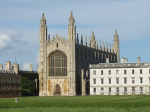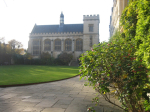
Culture
-
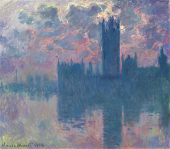 Fake Monet and Renoir paintings detected on eBay using AI
Up to 40 counterfeit paintings, including alleged works by Monet and Renoir, have been identified for sale on eBay, according to research conducted by Dr. Carina Popovici, an expertRead More...
Fake Monet and Renoir paintings detected on eBay using AI
Up to 40 counterfeit paintings, including alleged works by Monet and Renoir, have been identified for sale on eBay, according to research conducted by Dr. Carina Popovici, an expertRead More... -
 Pippa Middleton and James Matthews unveil lodge at Bucklebury Farm
Pippa Middleton and her billionaire husband James Matthews have inaugurated the lodge at Bucklebury Farm Park in Berkshire, offering a venue for parties, events, and Pilates sessions.Read More...
Pippa Middleton and James Matthews unveil lodge at Bucklebury Farm
Pippa Middleton and her billionaire husband James Matthews have inaugurated the lodge at Bucklebury Farm Park in Berkshire, offering a venue for parties, events, and Pilates sessions.Read More... -
 Five British museums nominated for prestigious arts prize
Museums across Skipton, Dundee, Manchester, and London are vying for the esteemed title of Museum of the Year 2024.Read More...
Five British museums nominated for prestigious arts prize
Museums across Skipton, Dundee, Manchester, and London are vying for the esteemed title of Museum of the Year 2024.Read More... -
 Gustav Klimt portrait sells for £25.7 million at Vienna auction
A long-lost portrait by Gustav Klimt, depicting a young woman, fetched a staggering 30 million euros (£25.7 million) at an auction held in Vienna on Wednesday.Read More...
Gustav Klimt portrait sells for £25.7 million at Vienna auction
A long-lost portrait by Gustav Klimt, depicting a young woman, fetched a staggering 30 million euros (£25.7 million) at an auction held in Vienna on Wednesday.Read More... -
 Rishi Sunak: remembering those lost in terror attack
In his Passover message to the Jewish community, Prime Minister Rishi Sunak acknowledges the somber reality that "for too many families, there will be empty seats" at the Seder table thisRead More...
Rishi Sunak: remembering those lost in terror attack
In his Passover message to the Jewish community, Prime Minister Rishi Sunak acknowledges the somber reality that "for too many families, there will be empty seats" at the Seder table thisRead More... -
 Co-op Live: Manchester's new arena opens with high capacity and ambitions
A monumental addition to Manchester's entertainment landscape, the new £365m Co-op Live arena is poised to claim the title of the largest indoor arena in the UK. Nestled beside ManchesterRead More...
Co-op Live: Manchester's new arena opens with high capacity and ambitions
A monumental addition to Manchester's entertainment landscape, the new £365m Co-op Live arena is poised to claim the title of the largest indoor arena in the UK. Nestled beside ManchesterRead More... -
 Brontë birthplace unveils open day prior to renovation
The birthplace of the renowned Brontë sisters is set to welcome visitors for a special glimpse inside before embarking on a significant refurbishment.Read More...
Brontë birthplace unveils open day prior to renovation
The birthplace of the renowned Brontë sisters is set to welcome visitors for a special glimpse inside before embarking on a significant refurbishment.Read More... -
 Taylor Swift's 'The Tortured Poets Department' smashes Spotify record
Taylor Swift's latest album, "The Tortured Poets Department," has shattered Spotify's record for the most-streamed album in a single day, the platform has announced. Not only did Swift'sRead More...
Taylor Swift's 'The Tortured Poets Department' smashes Spotify record
Taylor Swift's latest album, "The Tortured Poets Department," has shattered Spotify's record for the most-streamed album in a single day, the platform has announced. Not only did Swift'sRead More... -
 Historic London pub, linked to Royalty, ravaged by fire: a heartbreaking loss
A renowned London pub, steeped in history dating back possibly to the 16th century, has suffered extensive damage in a devastating fire. The Burn Bullock, a grade II-listed establishmentRead More...
Historic London pub, linked to Royalty, ravaged by fire: a heartbreaking loss
A renowned London pub, steeped in history dating back possibly to the 16th century, has suffered extensive damage in a devastating fire. The Burn Bullock, a grade II-listed establishmentRead More... -
 Salvator Rosa painting stolen from Oxford, recovered in Romania, and returned to UK
A painting valued at EUR 2 million, stolen from an art gallery at Oxford University approximately four years ago, has been recovered in Romania and returned to UK judicial authorities,Read More...
Salvator Rosa painting stolen from Oxford, recovered in Romania, and returned to UK
A painting valued at EUR 2 million, stolen from an art gallery at Oxford University approximately four years ago, has been recovered in Romania and returned to UK judicial authorities,Read More... -
 Plans to demolish former Museum of London site put on pause
A last-minute intervention from Levelling Up Secretary Michael Gove has halted plans to demolish the former Museum of London site.Read More...
Plans to demolish former Museum of London site put on pause
A last-minute intervention from Levelling Up Secretary Michael Gove has halted plans to demolish the former Museum of London site.Read More... -
 June’s London Fashion Week returns with fresh concept
The British Fashion Council has unveiled an innovative approach for the upcoming London Fashion Week in June, aiming to spark a cultural phenomenon. Set to take place fromRead More...
June’s London Fashion Week returns with fresh concept
The British Fashion Council has unveiled an innovative approach for the upcoming London Fashion Week in June, aiming to spark a cultural phenomenon. Set to take place fromRead More... -
 London's inaugural Taiwanese culture festival explores island's identity and history
London's vibrant Notting Hill district is about to experience a taste of Taiwanese culture with the launch of the 16-day Taiwan Festival on Friday, April 12.Read More...
London's inaugural Taiwanese culture festival explores island's identity and history
London's vibrant Notting Hill district is about to experience a taste of Taiwanese culture with the launch of the 16-day Taiwan Festival on Friday, April 12.Read More...

British Queen celebrates
Most Read
- Teen held after US woman killed in London stabbings
- Heave-ho Harry! Prince prepares to join the walking wounded in ice trek to North Pole
- Football: Farhad Moshiri adamant Everton deal above board
- "Master of English Style". Interview with Designer Lydia Dart
- Letter to the Financial Times from Lord Mayor Alderman Michael Bear
UK news
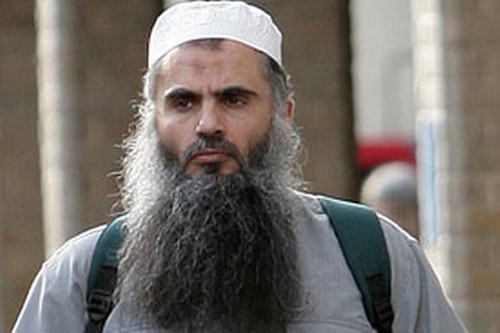
Islamist militants have offered to free a British-South African hostage if London allows radical cleric Abu Qatada to choose a country for his extradition, US monitoring service SITE said.
Al-Qaeda in the Islamic Maghreb (AQIM) also threatened that Britain would "open the door of evil" unto its country and people should it send the imam back to his native Jordan where he faces jail, the report said.
AQIM -- Al-Qaeda's North African franchise -- has been holding Stephen Malcolm, 37, and two other Western men hostage since abducting them last November in the northern Mali desert city of Timbuktu.
Britain has been trying to deport Abu Qatada for more than six years, arguing he is a threat to national security, to Jordan, where the cleric was convicted in 1998 in absentia of involvement in terror attacks.
Videos of the cleric's sermons were found in the Hamburg flat used by some of the hijackers in the September 11, 2001 attacks, while he has also defended killing Jews and attacks on Americans.
The cleric's removal was blocked in January by the European Court of Human Rights, which cited the risk that evidence obtained from torture would be used against him on his return to Jordan.

A purely Tory government would not be pressing ahead with reform of the House of Lords in this parliament, Justice Secretary Ken Clarke admitted.
The Justice Secretary hinted at tensions within the coalition amid reports that at least six Cabinet ministers would prefer to see the changes delayed.
Philip Hammond, Iain Duncan Smith, Michael Gove, Eric Pickles, Owen Paterson and Lord Strathclyde are said to be among senior Conservatives who have voiced doubts.
The party's backbenchers are also threatening a mass rebellion on the issue, with the potential for resignations by several ministerial aides.
Speaking on Sky News' Murnaghan programme, Mr Clarke stressed that he had always been in favour of an elected upper House.
"The existing House of Lords is a curious historical anomaly," he said. "We are ready for democracy, I think. All three political parties were in favour of House of Lords reform in their last manifestos."

US pop diva Lady Gaga arrived in South Korea late Friday, one week before a Seoul performance which will kick off her third concert tour. The singer, wearing a floor-length low-cut white dress, white gloves and a pearl-encrusted mask, blew kisses to fans at Seoul's Gimpo airport who tried to snap her image on smartphones. Her schedule in South Korea for the coming week was unclear and concert organisers Hyundai Card declined to give details. "The Born This Way Ball" tour begins on April 27 at Seoul's Olympic Stadium. From there Lady Gaga will take her hits and extravagant costumes to Hong Kong, Japan, Taiwan, the Philippines, Thailand, Singapore, Indonesia, New Zealand and Australia, and then on to 21 European cities. South Koreans aged under 18 have been banned from the concert after it was rated unsuitable for younger audiences.
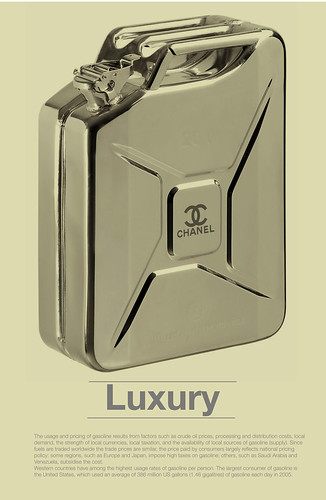
Police closed some petrol stations Thursday to stop panic buying as the government faced criticism for warning motorists to stock up ahead of a threatened strike by tanker drivers.
Retailers said petrol sales were nearly double normal on Wednesday, while there was a surge in sales of jerrycans after a minister advised people to fill them with fuel, in comments he was later forced to retract.
Opposition Labour Party leader Ed Miliband called on Prime Minister David Cameron to apologise after the government issued a string of conflicting messages to motorists.
"The prime minister is presiding over a shambles on petrol. The country is paying the price for the incompetent way he is governing," Miliband said.
Police forces in several areas reported queues at petrol stations.
The county of Dorset said it had told some petrol stations to close temporarily because motorists were behaving "irresponsibly" and causing a danger to others.
"Police are taking action, requesting petrol stations to close temporarily in order to keep traffic flowing. Once the queues have dispersed, the petrol stations may reopen for short periods," Dorset Police said.
Emergency services in London and West Sussex said they had been called out to deal with spillages from people overfilling their vehicles.
The Automobile Association said there were "localised shortages, queues and some profiteering" at petrol stations.
Workers in five oil companies have already voted in favour of industrial action over terms, conditions and safety standards but have not yet set a date for a strike.
Negotiators said talks on the strike would not be held before Monday.
The government has said it is training up army tanker drivers to take over in case a strike goes ahead.
But the government on Thursday repeated its advice to people to keep stocked up with petrol, although it toned down the message after a series of conflicting comments by Cameron and other ministers the previous day.
Energy Minister Ed Davey denied the government was creating panic.
"Our major advice is that people just need to do the sensible thing if they're going into the petrol station, they should get a full tank of petrol, not a half-tank of petrol, and they should top up where necessary," he told the BBC.
The fuel saga hotted up on Wednesday when Cabinet Office minister Francis Maude said that motorists should fill up jerrycans with petrol and keep them in their garages.
Firefighters said his advice was dangerous -- and illegal depending on the size of the cans involved -- and the government retracted Maude's advice on Thursday.
Roads minister Mike Penning said it had been "a mistake by the cabinet minister... He has apologised since".
The government's words failed to assure motorists. Halfords, a motor supplies retailer, said sales of jerrycans had increased by 500 percent from the same time in 2011.
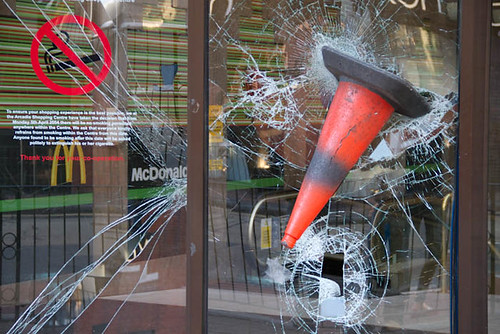
Poor parenting and a lack of support for disenfranchised young people played a major role in sparking last year's riots, an independent panel reported on Wednesday.
The Riots, Communities and Victims Panel report, commissioned by the government, also blamed an inability to prevent reoffending, lack of confidence in the police and poor schooling.
"We must give everyone a stake in society," said panel chairman Darra Singh.
"When people don't feel they have a reason to stay out of trouble, the consequences for communities can be devastating.
"The causes of the riots were complex and there is not one thing that will prevent them from happening again."
The report called on the government and local public services to develop a strategy to help "500,000 'forgotten families' turn their lives around."
Police arrested 4,130 people and charged 2,577 over the riots, an explosion of violence in English cities last summer that left five people dead and raised questions about the state of British society.
Up to 15,000 people are estimated to have taken part, most under 24 with poor academic records, the report said.
An 11-year old boy was last week handed six months' detention for his part in the disorder, becoming the youngest person to be prosecuted over the unrest.
The report suggested that schools be fined if they failed to teach pupils to read and write.
But Labour lawmaker David Lammy said that criticism of schools was "a bit unfair".
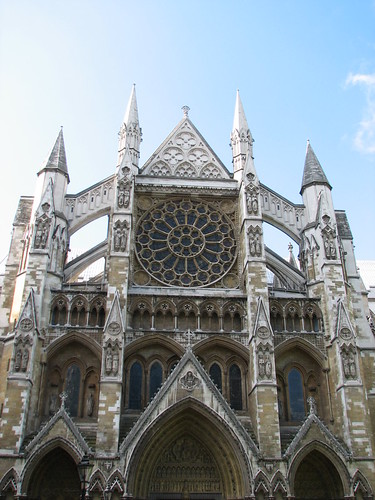
Westminster Abbey is to honour two former prime ministers from the 1970s with memorial stones.
Sir Edward Heath and Lord James Callaghan will become the first premiers to receive dedications at the Abbey for more than half a century - and the move marks the centenary of Lord Callaghan's birth.
The memorial stones for Heath, who served as prime minister between 1970 and 1974, and Callaghan, the country's premier from 1976 to 1979, are expected to be unveiled later this year.
The Dean of Westminster, the Very Rev Dr John Hall, said: "The men and women who have contributed most to our island story and our nation's international influence are memorialised in the Abbey, including most prime ministers of the 19th century and of the first half of the 20th century.
"And yet no prime minister since 1956 has a memorial in the Abbey.
"I have decided, with the support of those closest to them, to include two prime ministers from the 1970s, each of whom gave dutiful service in their own time. The announcement falls on the 100th anniversary of James Callaghan's birth.
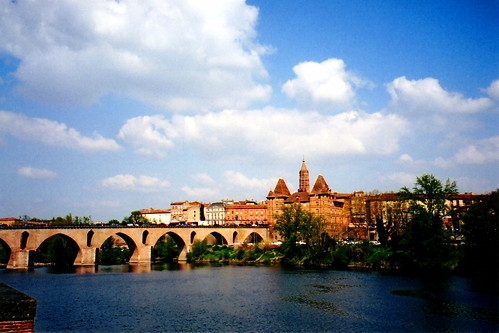
A gunman has opened fire in front of a Jewish school in south-west France, killing several people.
City prosecutor Michel Valet said there were "several dead" in the shooting at a school in Toulouse. He said it was unclear whether the victims were children.
The shooting happened in the same area where a gunman on a motorbike opened fire on three uniformed paratroopers at a bank machine on Thursday, killing two and critically wounding the other.
The attack in the town of Montauban occurred not far from the soldiers' barracks. Four days earlier, a gunman on a motorbike shot and killed another paratrooper in Toulouse.
Authorities said at the time that forensic analysis showed that the same weapon was used in the shootings in Montauban and Toulouse.
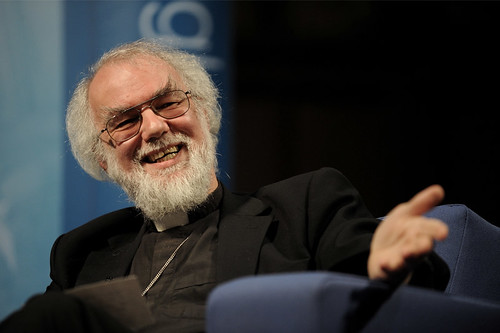
Archbishop of Canterbury Rowan Williams, the spiritual leader of the world's Anglicans, said Friday he will resign at the end of the year after a decade of turmoil over female and gay bishops.
The bushy-bearded 61-year-old announced in a statement that he would take up a position as master of Magdalene College at Britain's prestigious Cambridge University in January 2013.
"It has been an immense privilege to serve as Archbishop of Canterbury over the past decade, and moving on has not been an easy decision," he said in the statement, released by his office, Lambeth Palace.
"During the time remaining there is much to do, and I ask (for) your prayers and support in this period and beyond."
The Church of England could now see its first black Archbishop of Canterbury, with John Sentamu, the Archbishop of York, widely viewed as front-runner to replace Williams.
Williams' successor will be formally appointed by Queen Elizabeth II, who is the Supreme Governor of the Church of England. Lambeth Palace said Williams's intention to resign had been formally conveyed to the queen.
The actual decision will rest in the hands of a commission grouping senior churchmen and lay people, who will then forward their nomination to British Prime Minister David Cameron.
Welsh-born Williams was appointed the 104th Archbishop of Canterbury in 2002, replacing George Carey.
But his tenure was marked by his difficulties in maintaining unity amid disagreements over the consecration of female bishops in Britain, and of openly gay bishops in the United States.
The rows have threatened to cause a permanent rift with conservative Anglican bishops in Africa in particular.
Williams told the Press Association, Britain's domestic news agency, that his resignation comes ahead of a number of key events including a vote by the Church of England this year on whether to give final approval to women bishops.
"A number of what I call watersheds seemed to make this a reasonable moment, at least, to think about moving on," he said.
He admitted that the disagreements within the Church had been a "major nuisance" but insisted they had not clouded his tenure as Archbishop of Canterbury.
"Crisis management is never a favourite activity, I have to admit, but it is not as if that has overshadowed everything," he said.
"It has certainly been a major nuisance. But in every job that you are in there are controversies and conflicts, and this one isn't going to go away in a hurry.
"I can't say that it is a great sense of 'free at last'."
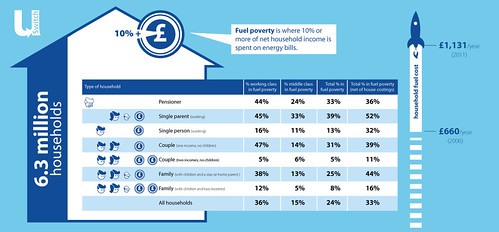
More people are in fuel poverty than previously estimated, according to a new formula proposed for assessing the problem.
And the outlook is "profoundly disappointing", according to the independent expert commissioned by the Government to review fuel poverty, with the scale of the problem set to treble by 2016 on 2003 levels.
Under the new formula, which counts people who have to spend more than the typical amount on fuel bills and where the costs push them below the poverty line, 7.8 million people in 2.7 million households in England were in fuel poverty in 2009.
This compares with 7.2 million people in four million households in fuel poverty in 2009, the most recent year for which figures are available, under the current measure that they spend more than 10% of their income heating their homes.
Official figures show that the number of households in fuel poverty has more than trebled since 2004 when 1.2 million families struggled to afford to heat their homes.
The new figures were revealed in a report from Professor John Hills at the London School of Economics and Political Science, commissioned amid concerns about the 10% measure.
The report suggests the new formula because existing figures include people who are not actually poor and do not focus on the twin issues of low incomes and high fuel costs, or measure the depth of the problem. Professor Hills warned fuel poverty was a "serious national problem" which will have trebled in scale from 2003 levels by 2016, the year by which the Government has targets to eradicate the problem.

Britain will stick to its plans for a 2014 pullout from Afghanistan despite tensions over the shooting of 16 villagers by a US soldier, David Cameron's spokesman said Monday.
The spokesman said that the killing spree in the southern province of Kandahar, which has sparked a new crisis in relations between western countries and Afghanistan, was "abhorrent".
"This was clearly a tragic event that has taken place. Our hearts and sympathies go out to the families of those that have died," the Downing Street spokesman told reporters.
"As far as we are aware it was an abhorrent act by a single individual. There is a NATO-ISAF investigation underway.










